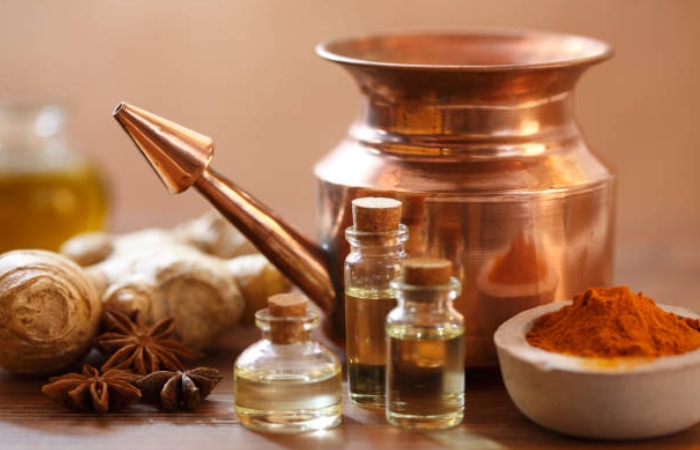Many Wellness home remedies can help treat various conditions, such as colds, inflammation, and pain. These are not always supported by research. But scientists suggest some might work.
Chances are you’ve already used a home remedy: herbal teas for colds. Essential oils to relieve headaches, herbal supplements for a better night’s sleep. Maybe it was your grandmother. Or you heard it online. You tried, and perhaps now you’re wondering, “Should I try again?”
Turmeric for pain and inflammation
Who has never heard of turmeric? Turmeric wellhealth has been used in South Asia as part of Ayurvedic medicine for almost 4,000 years. When it originates to proven medicinal uses, the golden spice may be most excellent for treating pain, especially pain associated with inflammation.
Several studies have shown that curcumin is responsible for the wow effect of turmeric. In one study. People with arthritis noticed that their pain levels decreased more after taking 500 milligrams (mg) of curcumin than after 50 mg of diclofenac sodium, an anti-inflammatory.
Chili peppers for pain and soreness home remedies
This active component of chili pepper has long been used in traditional medicine and has gradually gained popularity outside of homeopathy.
Today, capsaicin is a popular topical ingredient for managing pain. It works by warming an area of skin before ultimately numbing it.
Today, you can get a treatment capsaicin patch called Qutenza, which reliecs on a very high level of capsaicin (8%) to work. So, when it comes to muscle aches or general body aches that won’t leave you alone, do you have hot peppers or cayenne pepper on hand? Prepare the capsaicin cream.
Homemade coconut oil and capsaicin cream
- Mix three tablespoons of cayenne precipitate with 1 cup of coconut.
- Warm the oil over low heat until it melts.
- Stir the mixture well for 5 minutes.
- Remove from warmth and pour into a bowl. Let it harden.
- Massage onto the skin once cooled.
Testing your reaction to the compound before using it too intensively is essential. You can also use jalapeno peppers, but the spiciness may vary depending on the pepper. Never use this cream on your face or eyes; wear gloves when applying it.
Common Home Remedies for Good Health

Here are some of the most common home remedies:
Ginger
Ginger is a very versatile spice. Besides being an essential ingredient in almost all Indian dishes, it can relieve sore throats, nausea, coughs, and colds. This spicy root is used by grating, grinding, or boiling it in pieces with tea to relieve sore throats and nasal congestion. Its marinated slices can also be used as palate cleansers between meals.
• Peppermint
Peppermint has a distinctive flavor that soothes everyone, as it is often used as chewing gum to treat anxiety and calm the nerves. Mint can be used to prepare tea, which is very useful for people suffering from indigestion. It can be used as an essential oil or as dried leaves for aromatherapy and scents.
• Sugar
We often associate sugar with a harmful effect because it causes dental problems. However, we don’t realize it is a popular additive in foods and drinks and a cure for hiccups. This substance is extracted from sugar cane, and just a tablespoon can stimulate the vagus nerve and stop diaphragm spasms.
• Sodium bicarbonate
Baking soda is also recognized as sodium bicarbonate. In addition to being used for baking cakes, its essential nature also neutralizes harmful acids such as poison ivy bees and ant stings. It helps treat urinary infections and odors and is a cosmetic product to whiten teeth. Thanks to its antibacterial properties, it is used to stop the spread of diseases.
• Apple cider vinegar
This vinegar category is made from fermented cider and used for baking, pickling, preserving, or even adding different flavors to different dishes. A simple spoonful with a cup of lukewarm water can cure many problems like diarrhea as it helps soothe the colon lining and is antibacterial. It can also heal sore throats, solve the problem of nasty foot odor, and remove acne and oil from the skin.
• Garlic
Like ginger, garlic is also a root widely used to flavor and add taste to dishes. It is inexpensive, widely available, and helpful in solving various problems. It is commonly used for sore throats, flu, colds, and ear infections. It is also used to protect and control high blood pressure.
Shiitake mushrooms for the long game
Lentinan, also recognized as AHCC or active hexose correlated multiple, is an extract of shiitake mushrooms. Promotes antioxidant and anti-inflammatory effects at the cellular level.
A petri dish study suggests that AHCC may help inhibit breast cancer cells and that its interaction with the immune system may help fight cancer by improving the immune system weakened by chemotherapy. If you find bone broth comforting, add some chopped shiitake mushrooms next time. After four weeks, one study found that consuming 5-10g of shiitake mushrooms daily helped strengthen the human immune system.
Eucalyptus oil for pain relief home remedies
Eucalyptus oil contains a compound called 1,8-cineole, which may help relieve pain. The component has an effect similar to that of morphine when tested on mice.
And for essential oil lovers, you’re in luck. Eucalyptus oil has been exposed to relieve body pain even after inhalation. For fans of Vick’s VapoRub, who inhale it as a home remedy for congestion, eucalyptus oil is its magic ingredient.
However, inhaling eucalyptus oil is not for everyone. This oil can cause asthma and be harmful to pets. It can also cause breathing difficulties in babies.
Magnesium-rich foods for everything
Do you feel muscle pain? Fatigue? Do you still have migraine attacks? Are you more likely to fall into a state of emotional numbness than usual? It may be a magnesium deficiency. Although magnesium is often discussed in terms of bone growth and maintenance, it is also essential for nerve and muscle function.
However, educations show that nearly half of the U.S. population doesn’t get the amount of magnesium they need. So, if you’ve ever complained about these symptoms and received a somewhat terse response of “Eat spinach,” know that it’s not finally unfounded.
Spinach, almonds, avocados, and smooth dark chocolate are magnesium-rich. You don’t necessarily need a supplement to treat a magnesium deficiency.
When it comes to mood. Magnesium can also help. Magnesium works with the parasympathetic nervous scheme, which keeps you calm and relaxed, suggesting that a magnesium-rich diet could help relieve stress.
Make sure to use home remedies correctly.
Although most of these natural remedies do not cause significant side effects, they can be harmful if used excessively. Some people may also be more sensitive to dosages, so if you are taking medication or living with a disease affected by your diet. Talk to a medic before consuming these foods regularly. And if you have an allergic response or worsening symptoms after a home remedy. Speak to a doctor immediately.





